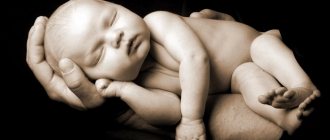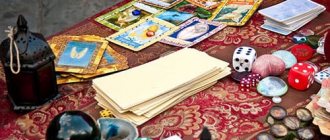Dreams occupy a certain place in our lives. Depending on whether the journey to the kingdom of Morpheus was pleasant, a person’s mood may deteriorate or, on the contrary, improve. Sometimes we remember dreams throughout the day or immediately forget them after waking up. Particularly impressionable people tend to idealize their dreams and consider them harbingers of unheard-of happiness or misfortune. In some cases, they get upset when they see a bad sign for themselves. Skeptics argue that dreams in themselves mean nothing and cannot have any serious consequences.
They say that you don’t need to attach any significance to what you see in the silence of the night. The dark time of day is famous for its mystery, and therefore anything can be dreamed of. Should you believe dreams? Today there are special books and electronic portals that describe the interpretation of dreams. Dream books contain a minimum of information about the nature of this phenomenon and rarely give any detailed meaning. Should you trust the interpretation of dreams? Let's try to figure it out!
Theories about the nature of sleep
There are 3 theories about the nature of sleep. Each of them has supporters and opponents:
- In a dream, the soul is separated from the body. She travels through subtle worlds and is able to meet other souls and deceased relatives. A spiritually prepared person is able to control himself while traveling—a similar experience is shared by people who engage in astral travel. An unprepared person is not able to perceive the subtle world, so his wanderings remain in memory as a mixture of memories, sometimes crossing all boundaries of the reasonable.
- Rest is needed to “reboot” the brain. All the impressions of the day are sorted out, and sometimes old memories flash through. A person often sees himself in everyday or unusual situations. This theory has a fragile basis, since scientists have concluded that the brain does not get tired. Sleep is needed for psychological relaxation, and the thought process is never interrupted.
- A theory that combines both options. It says that first the brain gets rid of the information accumulated during the day. Then, forgetting about earthly problems, the soul goes on a journey through the universe.
Some people deny the existence of the soul and the possibility of out-of-body travel.
Psychologists believe that dreams are a projection of experiences, feelings and dreams . Religious teachings claim that in dreams people not only travel, but also see fragments of memories from past lives.
Psychology and observation method
Most dream books were created by psychologists. They analyzed their dreams and the dreams of people they knew. They recorded it and compared it with ongoing events. If after a certain dream the same situation occurred 2-3 times, then it was compared with the dream scenario. There are no guarantees that anything close to the prophecy will happen.
Sometimes a feeling of deja vu - a person is sure that he has already seen this situation and knows what will happen. Psychologists claim that a similar moment from the past came to mind and the dreamer decided that he had seen the future.
Many studies by psychologists, upon closer examination, turn out to be poorly supported by facts. A feeling of déjà vu sometimes occurs in a person who has gone on vacation to the other side of the planet and suddenly realized that he has already been here and knows what is about to happen. And indeed, within 1-2 minutes what he was thinking about happens. You can't blame it on psychology.
Previously, conversations about the materiality of thought caused laughter. Scientists are now seeing patterns that prove the claim is true . Having accepted this hypothesis as a fact, one can discern danger in dream books. A person sees a dream and turns to the dream book for an interpretation. It says that the day will be bad. Unpleasant feelings overwhelm you, troubles are expected every minute. The result: absent-mindedness at work, nervousness, which at home results in conflict.
Indeed, the day was not going well - the man mentally prepared himself that it would be an unpleasant day, and so it happened. It is better never to blindly believe the predictions of a dream book.
Fact or Fiction
Sometimes there are chaotic, absurd dreams. They hardly carry any meaning. They reflect experiences, fears, dreams. It’s another matter if you had an obvious, clear dream that you remember well. With its help, deceased relatives, a guardian angel or simply light energy (everyone decides to the extent of their beliefs) gives a warning or a sign.
In this case, there is no point in turning to the dream book - for two people, the same symbol may contain different meanings.
Having seen a vivid dream, you need to think about what it means specifically for a person. Trust your intuition and think through the situation. A vivid dream most likely warns of danger . There is no point in warning about imminent wealth or happiness, while pointing out a threat is important.
The dream book will not help either when you dream of a deceased relative. This often happens after a funeral. Many people see that the deceased is in a brightly sunny field or in another beautiful place - this means that everything is in order with the soul.
When a person mourns a loss too bitterly, a dead man comes in a dream and says that he is drowning. This is a veiled request to stop grieving and tormenting both yourself and deceased relatives. Sometimes the souls of drowned people make it clear where to look for their body. Consulting a dream book is unlikely to give an accurate answer to what a dream means—you need to look at the specific situation in which many factors play a role.
Modern dream books
Nowadays there are a lot of scammers making up dream books. Is it worth believing in dreams and dream books when they are sometimes written at random, hiding behind the names of popular people:
- Wangi;
- Freud;
- Miller;
- Loffa;
- Jose;
- Nostradamus.
You should not look in dream books for the answer to any dream. If you turn to them, then only after seeing a clear dream, and not a chaotic flow of information. Then there is a chance that the prediction will be true.
Sometimes there are terrible predictions - death, illness. If you take them too seriously, then it is better not to decipher dreams. The interpretation may have turned out to be wrong, and the person will torment himself with fear and worry.
When thinking about whether you can trust dream books, you should follow the golden mean - turn to them, but perceive the information presented no more than 50%. It is written that there is danger - you should be more careful, but do not turn into paranoid. With sound reasoning and a calm approach, the dream book will become a harmless assistant, either predicting the truth or deceiving.
Every person has had dreams at least once in their life. For most people, their mood depends on their dreams. Many especially impressionable natures are able to see in them a harbinger of some fateful manifestations in real life. They try to remember and decipher each dream by rereading dream books. Others, on the contrary, argue that a dream is simply an echo of those events that occurred during the day and in themselves do not carry any information. So what are dreams and dream books? Should we believe them?
Dreams and dream books
Sleep is a physiological state of a person, during which the entire body rests . And the images that people visit at this time are evidence that the psyche is freeing itself from the information accumulated over the whole day. But there is another concept, which is based on the fact that during his stay in the kingdom of Morpheus, a person finds himself in the so-called other world and receives all kinds of instructions that some events may happen in life.
The dreams you see depend on a large number of factors : the state of health of the sleeper; because of what happened to the person during the day preceding the dream; from the position in which a person sleeps; from the room in which the sleeper is located and from many others.
In order to figure out what this or that dream portends, dream books have been created. These are books that contain definitions and interpretations of dreams. They appeared in ancient times, when people were very attentive to everything that happened while they were in a different state. We tried to remember our dreams and write them down. And then they observed what happened for several days after the dream. Thus, the first transcripts appeared, which were compiled into books.
Currently, there are a huge number of such books. There are more than 40 . The most famous are Miller’s Dream Book, Freud’s Dream Book, Vanga’s Dream Book, Nostradamus’ Dream Book, Tsvetkov’s Dream Book and many others. And everyone interprets dreams in their own way, but their general concepts are the same.
Whether or not to believe dreams and dream books is up to each person. But dream interpretation has its pros and cons.
Religion
This is an interesting question that deserves special attention. From a religious point of view, dreams are often prophetic, predicting something. They are not thoughtless, not useless, but necessarily indicate some kind of shortcoming that a person needs to eradicate for his spiritual growth. Should you believe dreams? Orthodoxy views this moment wisely and ambiguously. It is necessary to pay attention to what you dream.
But you must definitely correlate this with your internal state. If there are any negative emotions, it is better to understand their nature, atone for your guilt, and cleanse yourself mentally. Then bad dreams will stop bothering you. Religion calls for this.
The advantages of dreams and dream books
- A big plus is that in a dream a person can really see something very important , a detail that can affect his entire future life and become fateful. And with the help of books you can decipher what exactly can happen.
- A dream can tell you what a person needs to do in the current life situation. It can become a decisive link in making a particular decision. In this case, the dream book will help to explain exactly what actions a person must take in order for the situation to turn positive for him.
- With the help of data obtained in a dream, people can correct many of their actions . For example, making peace with a person with whom you quarreled.
- Dream books can tell you what changes await a person at work (promotion, dismissal), in the family (divorce, pregnancy, marriage).
- With the help of dreams and dream books, a person can avoid many troubles that can happen to him.
- Dreams can warn people about upcoming illnesses or injuries.
- In a dream you can see a dear person who has died and talk to him. Very often the dead come to their family and friends in a dream. They help them make decisions, support them in difficult situations, and encourage them.
What psychologists talk about
Experts tend to approach the issue of dreams with a clear sense of logic. Any unfinished business, unfulfilled promises and individual experiences weigh heavily on the heart. From a psychological point of view, dreams are a reflection of emotional life. It's just that nothing will bother you. Everything needs a reason.
If desired, the origins of any problem can be found by contacting a psychoanalyst. With the help of such uncontrollable visions, a person is mentally cleansed, which allows him to feel better. This is a necessary step that cannot be ignored. Therefore, each person has the right to decide for himself whether to believe dreams. Having made a choice, make a specific decision for yourself and calm down. You shouldn't torture yourself needlessly.
Disadvantages of Dream Decoding
- Probably the most obvious disadvantage in dream books is that in most cases, the interpretation of dreams is incorrect . That is, according to the dream book, a dream foreshadows something good, but in life, on the contrary, troubles happen. A person is able to consider a dream that does not mean anything prophetic. Women are especially susceptible to this condition. They often interpret dreams incorrectly.
- Quite often it is simply impossible to interpret a dream, or the dream is a dream that is not described in any known dream book. Then many people begin to look for something similar in dream books, and this is wrong and dangerous.
- If you had a bad dream, then people who are especially impressionable begin to be afraid of everything that happens to them . They become irritable, nervous, and begin to withdraw into themselves. And many generally sit at home and don’t go out anywhere, so that what the dream book told them about doesn’t happen to them.
- Dreams and dream books can push a person to take actions that may turn out to be fateful in his life. But they can negatively affect the rest of your life. A person can commit actions that cannot be corrected later.
- Dream books seem to program a person for any emotional experiences, stress, failures. People begin to transfer everything they see in their dreams into real life. Thus, they harm their physical, mental and emotional state. Psychologists say that self-hypnosis sometimes actually leads to unpleasant consequences. The same situation applies to positive dreams. If, according to the dream book, a dream promises something incredibly good, but in reality this does not happen, then this leads to a spoiled mood and disappointment.
Incredible journeys
Being in the arms of Morpheus, a person stops worrying about pressing problems. In many cases, people fly in their dreams, visit some mysterious planets, and are messengers of divine creatures. Incredible travel is one of the opportunities to feel happier, free from everyday burdens and various difficulties. Sleep strengthens a person’s nervous system and allows him to temporarily forget about upcoming solutions to complex issues. Such dreams, when you are traveling somewhere, should be taken precisely as an opportunity for a good rest. There is no need to try to look for some additional meanings in them that simply are not there. Just enjoy your vacation and don't make any further assumptions.
Some people have a habit of sleeping during daylight hours. Some people consider this phenomenon a bad habit, while other people do not see anything special in it. Should you trust daytime dreams? This question worries many who like to sleep sweetly. As a rule, such dreams are not particularly deep. They are superficial and do not bring the desired satisfaction. The healthy need for sleep is only partially realized. It is better to avoid such useless rest, and if it is necessary, then there is no need to worry about the dreams you have at this time. It is unlikely that they will correspond to reality.
How should we treat dreams?
The world of dreams is covered with incredible mysteries. This is the side of life that no one can influence . As soon as a person falls asleep, his subconscious goes on an unknown journey. During his stay in the kingdom of Morpheus, he experiences sorrows and joys, suffering and happy moments, pain and inspiration.
So, each person decides independently whether to believe or not to believe their dreams and interpretation through dream books. But in any case, it is necessary: to soberly evaluate everything that is seen in a dream.
There is no need to take everything you dreamed to heart ; if a person trusts dream books, then it is necessary to look at the interpretation of dreams only in time-tested dream books; try to decipher your dream yourself, sometimes it turns out more accurately than through dream books, since every person has intuition that helps to correctly interpret what he sees.
And you need to remember that most often dreams do not mean anything, but are only a consequence of what happens during the day.
Content
When we sleep, rational thinking turns off
Some parts of the brain become more active at night, while others turn off completely when we sleep, says psychologist, psychotherapist and somnologist Elena Kolesnichenko. If these processes are disrupted, then insomnia occurs. For example, the prefrontal cortex of the brain also “falls asleep,” so in our dreams we may see talking trees or flying giraffes. Rational thinking is turned off, so the dream can be fantastic, but the logic can be anything.
Believe it or not
With the help of dreams, his subconscious “speaks” to a person. In a state of rest, the brain automatically analyzes what happened during the day or a certain period, and then produces a “picture” of the logical end of the situation that has arisen. Can you trust dreams? While resting at night, a person loses power over thoughts, their endless flow remains uncontrollable. According to psychologists, dreams have nothing to do with predicting the future.
A person plans his life independently. In dreams, he sees not reality, but the embodiment of his own beliefs, fears and hopes; this information penetrates the subconscious when the body is set to rest. Should you believe dreams? Everything that was seen in dreams is a reflection of the filling of our inner world and does not in any way relate to events that will happen in reality. For example, if a person dreams of close people, this does not mean that trouble will happen to them. Superstitions about teeth falling out leading to the death of relatives or about dirty water predicting trouble are just visualized fears released into the wild by the uncontrollable subconscious at night.
About scary dreams
In some cases, a person wakes up in the middle of the night covered in sweat. When you have a bad dream, you really forget about everything. I just want to hide my head under the blanket and not think about anything. It seems that anything can happen to you; you completely lose your sense of the reality of what is happening. You jump out of such dreams in the same way that specially trained people jump with a parachute. A sudden awakening is also known to not improve health. Of course, scary dreams can't make you happy.
They tire you out more than even the most grueling work, and form obsessive states and phobias. What can you dream about? Terrible jaws, bloody battles, etc. Should you believe dreams about teeth? Not necessary. You have to take it on faith that they mean nothing. It’s just that the person was overly tired the day before, has unspoken aggression or uncontrollable fear. To get rid of such unpleasant dreams, you must work on yourself. Overcoming fears is not easy, but effort is still necessary. This will help you stop jumping up at night with anxiety.










